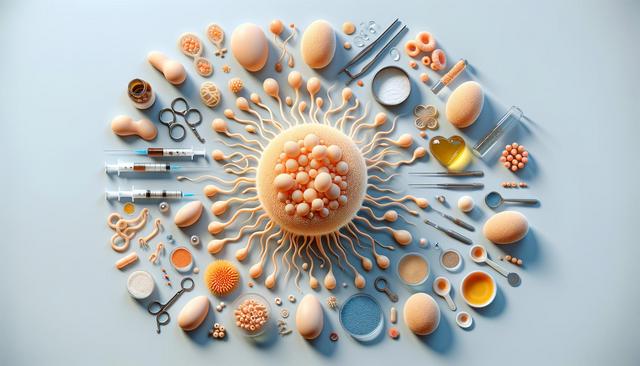Understanding Male Fertility Donation
Male fertility donation, commonly referred to as sperm donation, is an essential pathway for many individuals and couples who are unable to conceive naturally. This process involves a healthy male voluntarily providing a semen sample to a licensed fertility clinic or sperm bank. The purpose is to assist others in achieving pregnancy through assisted reproductive technologies such as intrauterine insemination (IUI) or in vitro fertilization (IVF). Whether due to male infertility, single parenthood, or same-sex couples seeking to become parents, sperm donation offers hope and opportunity. The process is confidential, regulated, and designed to ensure the health and safety of both donors and recipients.
Potential donors typically undergo a comprehensive screening process to assess their health, genetic background, and sperm quality. This includes:
- Medical and family history evaluation
- Physical examination
- Blood and urine testing for infectious diseases
- Genetic screening for hereditary conditions
These steps ensure that donated sperm meets strict medical standards, providing a safe and viable option for recipients.
The Importance of Donor Anonymity and Consent
Respecting the privacy and autonomy of all parties involved is a cornerstone of ethical sperm donation. Donors can choose whether they wish to remain anonymous or be open to potential future contact, depending on local regulations and the policies of the fertility clinic. Similarly, recipients can select donors based on various criteria such as physical characteristics, education, or personal interests, allowing them to find the most compatible match for their family-building goals.
Consent is another critical aspect of this process. Donors must provide informed consent, acknowledging their understanding of the medical procedure, legal rights, and potential implications of their donation. In some jurisdictions, donors may choose to waive anonymity, allowing children conceived through their donation to contact them once they reach adulthood. Legal frameworks continue to evolve, and both donors and recipients should be well-informed about their rights and responsibilities.
Who Can Become a Donor?
Not all men are eligible to donate sperm. To ensure the health and genetic integrity of the sperm, fertility clinics have specific criteria that must be met. Generally, suitable candidates are:
- Between the ages of 18 and 39
- In good physical and mental health
- Free from genetic or hereditary diseases
- Non-smokers and free from substance abuse
After passing the initial screening, donors must commit to the process, which may include multiple visits to the clinic over several months. In some cases, sperm samples are frozen and quarantined for a period, after which the donor undergoes additional testing to rule out infectious diseases before the sperm is released for use.
Sperm donation is not only a medical contribution but also a meaningful act of generosity. For many donors, the motivation lies in the desire to help others experience the joy of parenthood.
The Role of Fertility Clinics and Sperm Banks
Fertility clinics and sperm banks serve as intermediaries that ensure a safe, ethical, and efficient donation process. These institutions are responsible for:
- Conducting health and genetic screenings
- Storing and preserving sperm samples safely
- Matching donors with recipients based on preferences
- Managing legal and consent documentation
Clinics also provide counseling services for donors and recipients to help navigate emotional, ethical, and legal considerations. For recipients, having professional support can be crucial in understanding the implications of using donated sperm, especially if they plan to disclose the donor conception to their child in the future. Additionally, clinics help maintain transparency and provide guidance on the number of families a donor’s sperm can assist, which is often regulated to prevent accidental consanguinity.
By maintaining rigorous standards and offering compassionate care, these institutions play a pivotal role in supporting families facing reproductive challenges.
Ethical Considerations and Emotional Impact
While sperm donation offers a pathway to parenthood, it also raises ethical and emotional questions that deserve thoughtful consideration. Donors may reflect on the long-term implications of their involvement, including the possibility of future contact with offspring. Similarly, recipients may grapple with how and when to disclose donor conception to their child. Open communication, access to counseling, and understanding the emotional impact can contribute to healthier outcomes for all involved.
Some of the key ethical aspects include:
- Transparency and honesty in donor and recipient intentions
- Child’s right to know their genetic origin
- Legal clarity regarding parental rights and responsibilities
As public awareness and social norms evolve, many families are choosing to be open about their use of donor sperm. This shift encourages greater acceptance and emotional well-being for donor-conceived children, helping them build a secure sense of identity.
Conclusion: A Pathway to Parenthood Through Compassion
Male fertility donation offers a compassionate and practical solution for individuals and couples facing reproductive difficulties. It plays a transformative role in helping create families where biology may otherwise present barriers. By understanding the medical, ethical, and emotional aspects of sperm donation, donors and recipients can make informed, respectful decisions that align with their values and goals. Whether you are considering becoming a donor or exploring donation as a recipient, support is available to guide you through the journey with care and integrity. Together, these contributions help make parenthood possible for many who would otherwise face insurmountable challenges.






